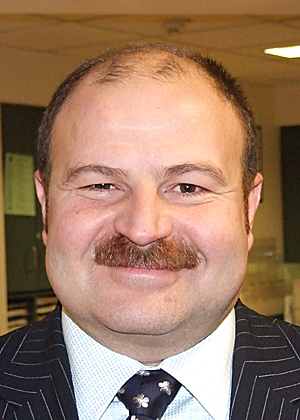Dr. Ahmad Samer Al-Homsi has joined Roger Williams Medical Center as director of the Blood and Marrow Transplant Unit. Al-Homsi comes to Roger Williams from the University of Massachusetts Memorial Medical Center, where he was director of the Blood and Bone Marrow Transplantation Unit and medical director of the Cancer Clinics. He completed his internship and residency in Internal Medicine at Christ Hospital and Medical Center in Illinois. He received his medical degree from Damascus University in Damascus, Syria.
PBN: What are you most looking forward to in your new position?
AL-HOMSI: Ultimately, our vision is to provide the citizens of Rhode Island and neighboring communities affected by malignant blood conditions – such as malignant lymphomas and leukemias – with the best possible care right in their home state. I was surprised with the number of patients who travel long distances over extended periods of time to get care in the surrounding states. It is clear we have all the necessary resources to change that.
PBN: What is a typical day like at the Roger Williams Medical Center’s Blood and Marrow Transplant Unit?
AL-HOMSI: A day here includes evaluation and counseling of new patients by a multidisciplinary team, follow-up care in a clinic setting, and daily rounds on the inpatient unit. In addition to the routine direct patient care, a lot goes on behind the scenes such searching for and screening potential donors, and harvesting and processing stem cells that will ultimately be used to transplant patients. As a teaching hospital, the Medical Center also provides medical education on the unit to residents and fellows from Roger Williams, Boston University, and Brown University. Additionally, the unit is active in various clinical and basic NIH-supported research.
PBN: Two years ago, Roger Williams Medical Center was accepted into the National Marrow Donor Program. What has that done to help the center and Rhode Island?
AL-HOMSI: One of the biggest problems facing patients in need of stem cell transplantation is the availability of a suitable donor. More than 70 percent of patients do not have appropriate donors in their family. Our partnership with the National Marrow Donor Program gives us access to more than 6 million potential volunteer donors and to a large inventory of cord blood units. It also allows the potential donors in our region to have their stem cells harvested closer to home so they can be used anywhere in the United States or around the world. •













